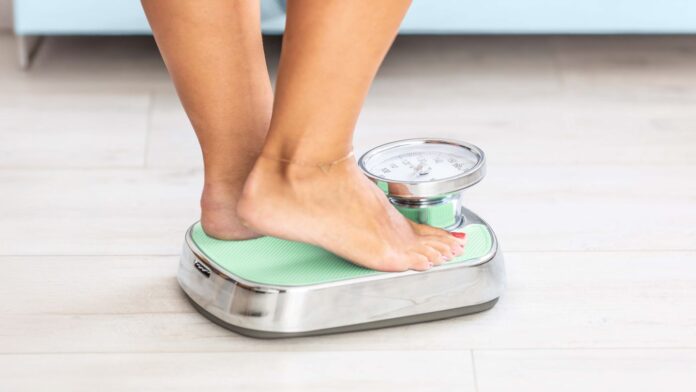GLP-1 medications like semaglutide (Ozempic, Wegovy) and tirzepatide (Mounjaro, Zepbound) are widely hailed as weight loss game changers. So if you’re taking one of these new drugs and the scale doesn’t seem to be budging, you may be wondering what’s going on.
Sometimes it’s a matter of being patient, as it may take a few weeks before you notice results, and plateaus can be a normal part of weight loss. That said, you shouldn’t rely solely on Ozempic to reach your goal.
“In order to see the results demonstrated in studies, GLP-1 medications should be combined with dietary and lifestyle interventions,” says Samantha Flanagan, DO, an obesity medicine specialist with Temple Health in Philadelphia. For maximum success, you need to steer clear of some common missteps that place key lifestyle changes on the back burner.
1. You’re Not Exercising
“An activity prescription is an essential part of all long-term [weight loss] plans,” says Richard Siegal, MD, an endocrinologist and a codirector of the diabetes and lipid center at Tufts Medical Center in Boston.
The clinician who prescribed your weight loss drug should also support your effort to improve your exercise habits. If they don’t, it might be a red flag that you’re not getting the thorough weight loss treatment and expertise that you deserve. Some sources such as online clinics and med spas, perhaps particularly those that provide compounded GLP-1s, may be less likely to offer lifestyle advice and support.
2. You Didn’t Change Your Diet
While it’s more common for people to struggle with eating enough on a GLP-1, not everyone on the medication ends up reducing their overall caloric intake the key to successful weight loss.
“Certain dietary habits can lead to higher caloric intake and less-balanced nutrition,” says Dr. Flanagan. “These include things like grazing (snacking all day but not eating any true meals) and alternating between skipping meals and eating larger, unhealthy meals.”
3. You’re Not Taking It as Prescribed
It’s okay to lower your dose or stop taking your GLP-1 altogether, but it’s important to do so with the guidance of your healthcare provider. If there are factors that are making it difficult for you to take your medication as prescribed, they may be able to help you troubleshoot and find a regimen that works better for you.
4. Your Other Medications Are Interfering
These medications deliver important benefits, so you shouldn’t just stop taking them for the sake of weight loss, says Flanagan. Instead, talk with your doctor about your medication plan as a whole. Together, you can figure out how to improve your weight loss plan while keeping any other health conditions under control.
5. You Need a Higher Dose
You may need a higher dose of a GLP-1 (or any other medication, for that matter) in order to achieve the results you’re seeking, even if you’ve made the recommended lifestyle changes. “Some people have a very significant response at the lowest dose of medication,” says Siegal. “Others need a higher dose to achieve a weight loss of 5 percent (of their body weight) or more.”
It’s worth giving your body a little bit of time if you’re not seeing the number on the scale trend downward. But if you’ve plateaued after a month or two at your current dose, talk with your doctor, says Siegal. As long as you’re meeting your nutritional needs and your side effects are manageable, you may decide together to increase your dosage.
6. Stress or Bad Sleep Is Sabotaging Your Weight Loss
Regardless of whether you take a GLP-1, chronic stress and a lack of quality sleep aren’t helpful for healthy weight management. “This is something I talk a lot about with my patients,” says Flanagan.
The Takeaway
- While GLP-1s often come with the expectation of significant weight loss, a number of factors can influence how your body responds to these medications.
- It’s important to combine your GLP-1 with dietary and lifestyle interventions such as regular exercise, a balanced diet, and quality sleep to achieve desired results.
- If you’re not seeing the results you want, reach out to your healthcare provider, who can help troubleshoot your current medication dose, connect you with a registered dietitian-nutritionist, and explore other factors that may be hindering your weight loss success.

